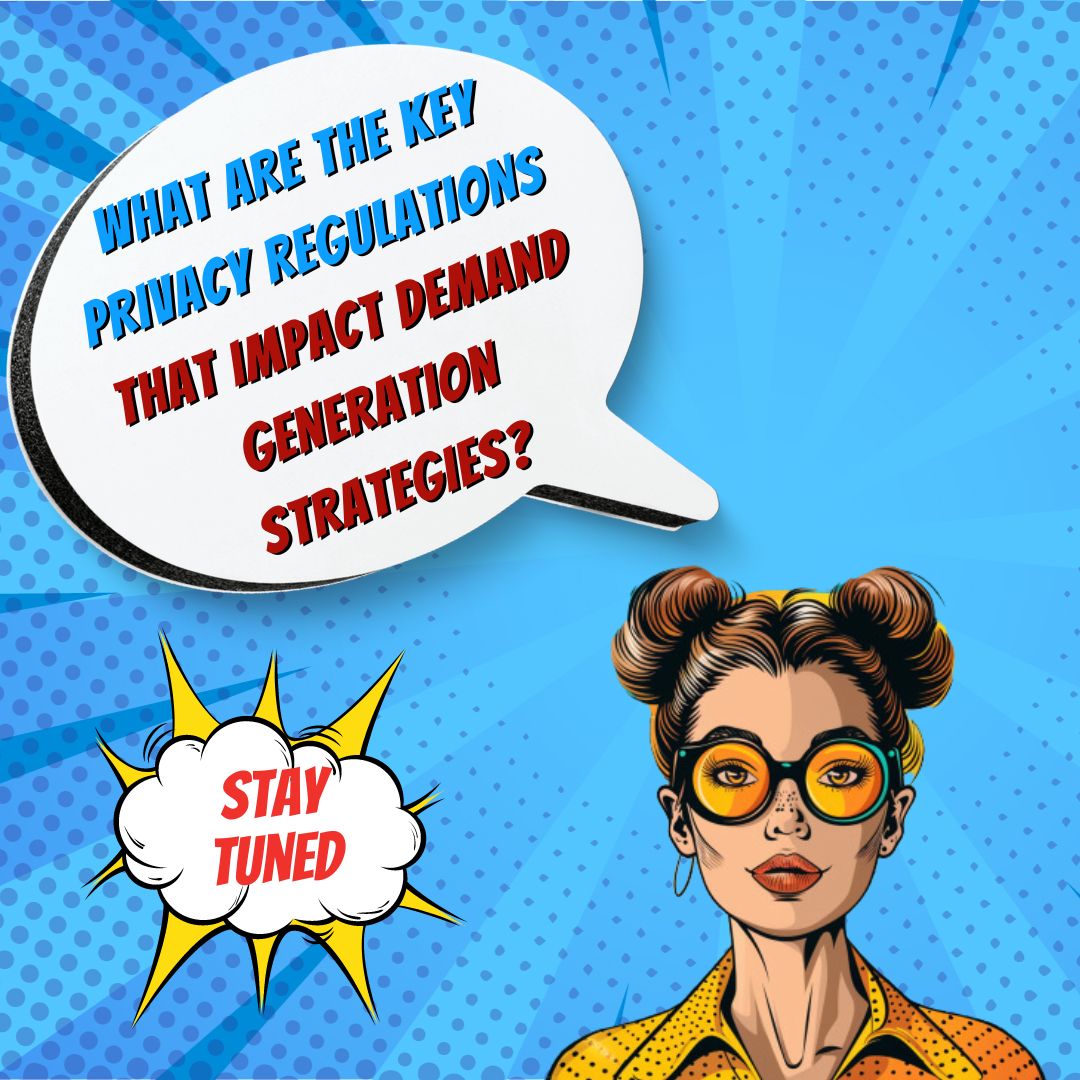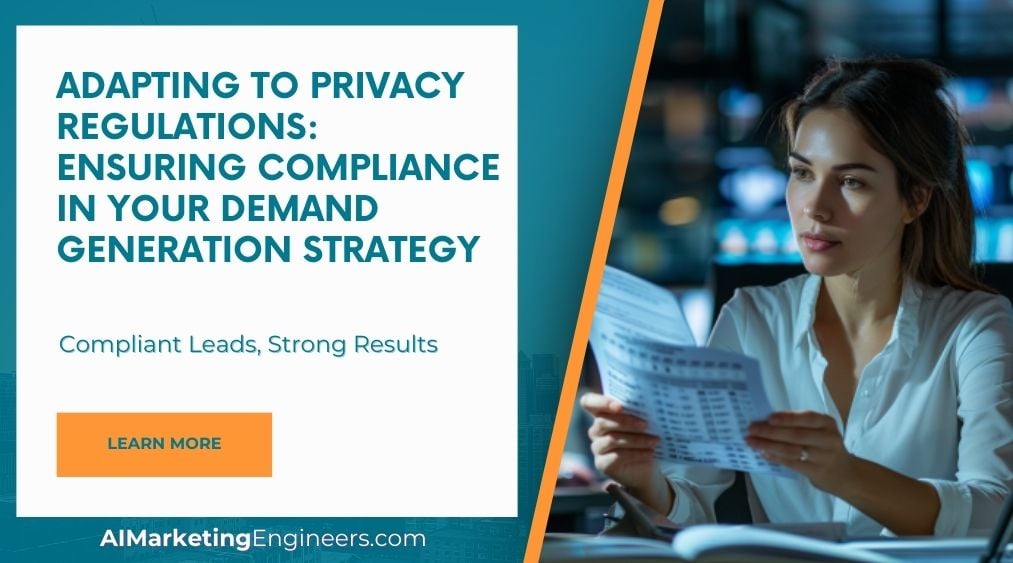Key Takeaways
✅ Understand and Comply with Regulations: Navigating the maze of global privacy laws, like the GDPR in Europe and the CCPA in California, is more than a legal checkbox. It's a foundation for building trust with your audience. Did you know, according to a recent survey, that understanding GDPR alone has saved companies from potential fines totaling billions of dollars? Aligning your marketing strategies to be compliant not only avoids hefty penalties but also assures your customers you value their privacy.
✅ Emphasize Transparency and Consent: As the digital landscape evolves, so does the importance of clear communication with your audience about how their data is used. A shocking 73% of consumers are more likely to trust businesses that practice transparency in their data collection processes. Leveraging tools like Google Consent Mode can help ensure that you're acquiring user consent in a transparent way, boosting your brand's integrity and compliance.
✅ Invest in Data Governance and Management: In an age where customer data is gold, having a structured approach to how you collect, process, and store data is crucial. Implementing solutions like a Customer Data Platform (CDP) or exploring server-side tracking can revolutionize not just compliance, but also the efficiency of your marketing efforts. Amidst tightening regulations, it's reported that companies with robust data governance strategies see a 40% increase in efficiency in their marketing campaigns.

Introduction
Are you at the crossroads of adapting your demand generation strategy to keep up with the fast-paced world of privacy regulations? You're not alone. The digital marketing landscape is undergoing a seismic shift, with privacy laws becoming a pivotal battlefield. The stakes? Your company's reputation, customer trust, and, not least, your bottom line.
Understanding the evolving privacy landscape is no longer optional—it's a core component of a sustainable, future-proof marketing strategy. This shift isn't just about staying out of legal hot water; it's about seizing an opportunity to differentiate your brand as a privacy-conscious leader in your industry. Imagine unlocking new avenues for maximizing revenue, achieving an impressive ROAS (Return on Ad Spend), or enhancing your overall ROI (Return on Investment) through innovative, compliant marketing strategies.
In this article, you'll discover actionable insights and groundbreaking information that will not only guide you through the maze of compliance but also highlight strategies for thriving in a post-regulation world. Prepare to dive deep into the world of privacy regulation adaptation—with a lens focused on compliance, transparency, and customer trust.
Top Statistics
| Statistic | Insight |
|---|---|
| 95% of decision-makers anticipate ongoing legislation and signal loss in 2024 and beyond. | This reflects an urgent need for businesses to adapt their strategies to stay ahead of regulatory changes and protect their customer relationships. |
| Modern privacy laws will cover about 75% of the world's population by 2024. | A staggering statistic that signifies the fast-paced global shift towards comprehensive data privacy policies—highlighting the importance of global compliance frameworks for businesses. |
| 86% of the US general population say data privacy is a growing concern for them. | This figure underscores the growing expectation of transparency and security from users—pressuring companies to prioritize and communicate their data protection efforts effectively. |
| 83% of consumers are concerned about sharing personal data online and 72% would stop buying from a company or using a service because of privacy concerns. | Highlighting the direct impact of privacy concerns on customer loyalty and retention, emphasizing the need for companies to implement stringent privacy protections. |
| Only 20% of privacy professionals say they are totally confident in their organization's privacy law compliance. | A low confidence level amongst privacy professionals, suggesting a widespread opportunity for improvement in privacy practices and compliance strategies. |
Understanding the Evolving Privacy Landscape
In recent years, the privacy landscape has seen significant shifts, with regulations such as the General Data Protection Regulation (GDPR) in Europe, the California Consumer Privacy Act (CCPA) in the U.S., and the General Data Protection Law (LGPD) in Brazil setting the stage. These regulations have one thing in common: they put consumer privacy at the forefront. For businesses, this means adapting demand generation strategies to stay compliant is no longer optional but essential. The challenge? Navigating through these laws which, while aiming to protect consumer data, also introduce complexity into how businesses collect, store, and utilize data. Understanding these laws is the first step in ensuring that your demand generation efforts don't fall foul of the law.
Key Challenges in Demand Generation Under New Regulations
Demand generation is the engine that drives business growth, but the new privacy regulations have thrown a wrench into the works. How do we collect consumer consent in a way that's both legal and non-intrusive? What changes need to be made in how we collect and share data? These questions highlight the balancing act businesses must perform between generating demand and staying compliant. The key challenge lies in redesigning demand generation strategies to respect user privacy while still engaging potential customers effectively.
Strategies for Adapting to Privacy Regulations
Adapting to privacy regulations doesn't have to mean the end of effective demand generation. On the contrary, businesses can see this as an opportunity to build trust with their audience. Transparency about how data is collected and used, coupled with clear consent mechanisms, can go a long way in maintaining customer trust. Implementing data minimization practices—collecting only the data that's absolutely necessary—along with ensuring secure data storage, will not only comply with privacy laws but also enhance the efficiency of your data management practices.
The Role of Technology in Ensuring Compliance
Technology plays a pivotal role in navigating the privacy compliance journey. Tools such as consent management platforms (CMPs) streamline the process of obtaining and managing user consent, ensuring that businesses can easily abide by legal requirements. Similarly, data management platforms (DMPs) and customer relationship management (CRM) systems allow for secure and compliant data storage and usage, providing businesses with the infrastructure to manage customer data responsibly.
Best Practices for Demand Generation in a Post-Regulation World
In a world where privacy regulations shape marketing strategies, there are several best practices that businesses should adopt. Building trust with customers by being transparent about how data is used and ensuring there are clear opt-out mechanisms will not only help with compliance but also enhance customer relationships. It's also crucial for businesses to stay on top of changes in privacy legislation to adjust their demand generation strategies accordingly. This proactive approach to privacy compliance ensures that businesses can continue to engage with their audience effectively without breaching trust or facing legal repercussions.
Future-Proofing Your Demand Generation Strategy
The privacy landscape is continuously evolving, and staying ahead requires vigilance and flexibility. Future-proofing your demand generation strategy involves regular reviews and adjustments to ensure ongoing compliance with existing and upcoming regulations. By integrating privacy compliance into your strategy development from the start, your business can maintain agility in the face of change, ensuring that your demand generation efforts remain effective and compliant. This proactive approach not only minimizes the risk of legal issues but also positions your business as a trusted and responsible player in a privacy-conscious market.
AI Marketing Engineers Recommendation
Recommendation 1: Embrace First-Party Data Collection: Recent studies have shown that nearly 88% of marketers see significant improvements in customer insights through the use of first-party data. By emphasizing strategies that leverage direct interactions—such as email sign-ups, customer feedback, and website analytics—you not only ensure compliance but also foster a deeper connection with your audience. This directly actionable method guarantees that you're gathering data ethically, straight from the source, and with clear consent.
Recommendation 2: Prioritize Transparency and Build Trust: With the General Data Protection Regulation (GDPR) in Europe and the California Consumer Privacy Act (CCPA) setting the tone, being upfront about your data practices is no longer optional—it's a must. Inform your customers exactly how their information will be used and provide them with easy options to control their personal data. Current trends highlight that businesses that demonstrate transparency see a 40% increase in customer trust. This approach not only ensures compliance but also significantly boosts brand image and loyalty.
Recommendation 3: Leverage Privacy-Focused Technologies and Partnerships. Tools and platforms that prioritize data privacy are becoming invaluable. For instance, privacy-first analytics platforms like Fathom and Matomo are gaining traction as alternatives to more invasive options. These tools ensure you gather essential marketing insights without compromising your audience's privacy. Additionally, partnering with companies that are committed to upholding data privacy standards can further ensure that every aspect of your demand generation strategy remains compliant. This practical application not only aids in adhering to regulatory demands but also positions your brand as a responsible entity in the digital economy.
Conclusion
In an era where privacy norms and regulations are rapidly evolving, staying on top of these changes is more than just a legal requirement—it's a cornerstone of building lasting customer trust. The journey of adapting to privacy regulations and ensuring compliance in your demand generation strategy is integral in navigating the maze of global privacy laws, from GDPR in Europe to CCPA in California and LGPD in Brazil. Businesses face a twofold challenge: aligning their marketing efforts with legal standards while still engaging customers effectively.
The key takeaways from our exploration underline the necessity of reassessment and adaptation. Crafting strategies that prioritize transparency, consent, data minimization, and secure data storage is not merely about avoiding fines—it's about showing your customers that you value their privacy. With technology playing a pivotal role, leveraging tools such as consent management platforms and data management systems can drastically ease the burden of compliance.
Moreover, the essence of future-proofing your demand generation strategy lies in staying informed and flexible. As privacy regulations continue to evolve, so too must your approaches. Embracing best practices—building trust, being transparent about data use, and ensuring clear opt-out mechanisms—will not only keep you compliant but also cement your reputation as a brand that cares.
So, what's the way forward? Beyond just adapting, there's a golden opportunity to innovate in how we engage with our audiences. As privacy becomes a priority for consumers, showing that your brand respects and protects personal data can become a key differentiator. Let's not view these regulations as hurdles but as stepping stones towards building deeper, trust-based relationships with our customers. The future belongs to those who not only comply but also care.
FAQs
Question 1: What are the key privacy regulations impacting demand generation?
Answer: The big players here are GDPR and CCPA. These are the rules making sure that how we gather and use customer data respects their privacy.
Question 2: Why is data privacy becoming a major concern in marketing?
Answer: Everyone's getting smarter about how their data's being used. With laws getting stricter, marketers need to step up and show they're handling data respectfully.
Question 3: What is the impact of limited access to consumer data on lead generation?
Answer: When we can't get as much data, it's tougher to zero in on the right folks with messages that hit home. This can mean not just fewer leads, but leads that don't fit as well.
Question 4: How can marketers balance personalization with privacy concerns?
Answer: It's all about being clever—using things like contextual ads, keeping privacy top of mind, and learning together but separately to keep things relevant yet private.
Question 5: What are the strategic advantages of adopting Consent Mode?
Answer: Consent Mode's a winner because it builds trust. It keeps everyone in the loop on how data's collected and used, helping navigate through privacy laws smoothly.
Question 6: How can advanced marketing analytical tools support compliance?
Answer: These tools are ace at giving a full view of the customer path, managing data carefully, and predicting the best marketing moves without stepping on privacy toes.
Question 7: What are the best practices for gathering marketing attribution in a compliant manner?
Answer: Stick to tools and strategies that respect privacy first. Focus on tracking conversions in a way that doesn't ruffle feathers but keeps your marketing sharp.
Question 8: How can marketers adapt to the loss of third-party cookies?
Answer: Leaning into first-party data, sticking with contextual ads, and embracing tech that respects privacy is the way forward without those cookies.
Question 9: What are the key considerations for building trust through transparency?
Answer: Keep privacy policies up to date, make sure consent is clear, and put privacy first. This builds solid trust and keeps you in the clear compliance-wise.
Question 10: How can marketers ensure data privacy compliance and strategic marketing?
Answer: Dive into analytics, machine learning, and AI, but in ways that respect privacy. It's about being smart with strategies that keep customers' privacy in check.
Question 11: What are the challenges and opportunities in navigating the privacy paradox?
Answer: The trick is finding the sweet spot between getting personal and keeping it private, using new tech and ideas to stay both relevant and respectful.
Academic References
- Marketing Evolution. (2023). Adapting to Marketing Data Privacy Regulations - Marketing Evolution. This significant publication unfolds the intricate methodologies employed by Marketing Evolution, highlighting the integration of machine learning and generative attribution. The approach facilitates the prediction and reconstruction of touchpoint exposure amidst stringent privacy regulations, ensuring compliance while yielding in-depth insights into essential performance metrics.
- MarTech. (2024). The State of Data in 2024: How the Ad Industry is Adapting to Privacy Regulations. Delving into the ramifications of evolving privacy legislations for the advertising sector, this article underscores the pivotal shift towards prioritizing consumer trust and the strategic importance of first-party data. It reports a staggering anticipation among 95% of decision-makers regarding the persistence of legislative advancements and the challenge of signal loss in the foreseeable future.
- PPC Ad Editor. (2024). How to Adapt to Privacy and Regulatory Changes with Consent Mode. An in-depth exploration of Google Consent Mode V2 provides a blueprint for enhancing compliance with data protection laws. The publication articulates how this evolved version offers enriched audience insights and better tool compatibility, including Google Ads and Analytics 4, ensuring a holistic approach to navigating the complex landscape of privacy compliance.
- Floowitalent. (2024). Top Demand Generation Challenges in 2024: Insights & Solutions. Mapping the terrain of challenges faced in the realm of demand generation, this source zeroes in on the Herculean task of adapting to privacy regulations and data collection norms. Offering strategic insights, the article serves as a clarion call to businesses to architect effective strategies conducive to legal compliance and the cultivation of unwavering customer trust.












